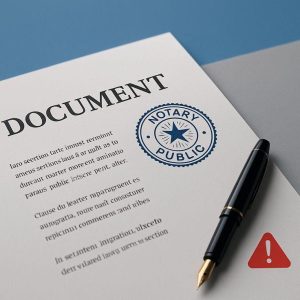Introduction
With more people working remotely, managing personal business online, and signing documents digitally, Remote Online Notarization (RON) is becoming a go-to solution for getting documents notarized quickly and securely. But one of the most common questions people ask is: “Is online notarization legal in my state?” The short answer: in many cases, yes—but laws and requirements can vary significantly by state. This guide breaks down how online notarization is regulated, what to look for in your state, and what it means for anyone looking to notarize documents remotely.
Online Notarization Laws Vary by State
While Remote Online Notarization is legal in a growing number of U.S. states, each state has the authority to set its own rules and requirements. Some states have fully adopted RON, allowing notaries to perform notarizations entirely online using secure video platforms. Others have passed temporary or limited-use laws—especially during the COVID-19 pandemic—while a few still require traditional, in-person notarizations only. It’s essential to check the specific regulations in your state to understand what kind of notarization is legally accepted.
View a state-by-state map showing where RON is currently legal.
You Don’t Always Need to Be in the Same State as the Notary
Here’s a little-known fact: you don’t necessarily need to find a notary in your state to get a document notarized online. In many cases, the notary only needs to be commissioned in a state that allows RON—even if the signer is located elsewhere. For example, a Virginia notary can legally notarize a document for someone living in California or overseas, as long as the notarization follows Virginia’s laws. This opens the door for people in states with limited or no RON legislation to still access secure online notarization services legally.
What to Look for in Your State’s RON Rules
If you’re unsure about your state’s stance on online notarization, check with your state’s Secretary of State website or licensing authority for notaries. Look for information on whether the state has enacted permanent RON laws, allows emergency or temporary RON, or requires in-person notarization. Also, pay attention to requirements around identity verification, platform approval, and document types allowed. These details help ensure your notarization is both legally binding and widely accepted by institutions like banks, courts, and government agencies.
Find your state’s notary public information and resources.
Conclusion
Online notarization is changing the way we handle paperwork—making it faster, safer, and more convenient. But whether it’s legal in your state depends on local laws and how they’re evolving. The good news? Even if your state hasn’t fully adopted RON, you may still be able to get documents notarized online through a commissioned notary in a state that has. Always verify current laws and choose a trusted provider to ensure your documents are handled legally and securely. Click the button below to check your state’s status and start your online notarization today.
👉 Check Your State’s Status & Get Started
Find out if Remote Online Notarization is allowed in your state and notarize your documents from anywhere.
Click here to check and get started →






